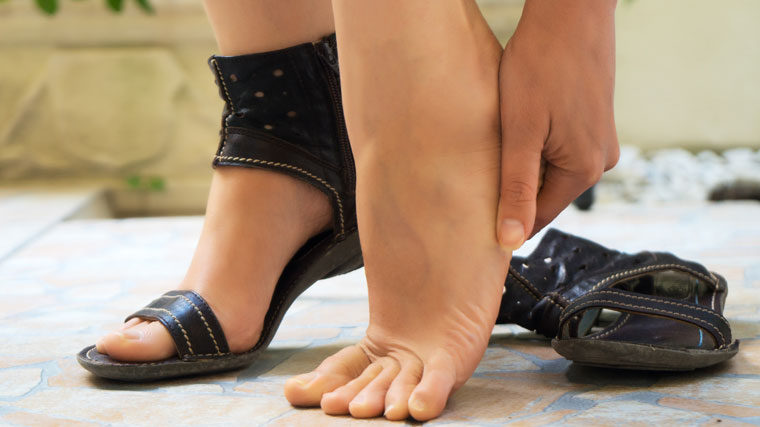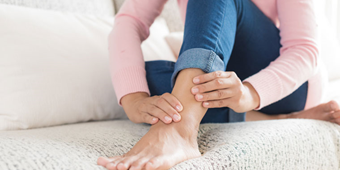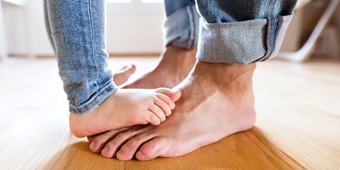Unless the Shoe Fits, Don’t Wear It

Find Your Perfect Match
Answer a few questions and we'll provide you with a list of primary care providers that best fit your needs.
Fashionable footwear comes at more of a price than the cost of your purchase. Shoes that you buy for their looks, but that don’t fit you well or provide adequate support, can cost you in long-term health issues.
Uncomfortable shoes can lead to foot and ankle troubles, and on up, to your calf muscles, Achilles tendons, knees, hips, back, and more.
Shoe-related health problems have increased as more people buy their shoes online. When you can’t try them on, you’re more likely to end up with poorly fitting shoes.
Footwear plays a large role in the development of foot and toe problems such as bunions, calluses and corns, and hammer, claw, and mallet toes.
Serious Side Effects Of Ill-fitting Shoes
Over time, poorly fitting shoes can make these conditions worse and more painful. They may eventually require surgery. On the other hand, or foot, wearing shoes that fit well and provide the comfort and support your feet need may help prevent foot problems from worsening.
Your feet play an important role in your overall health. Sometimes they provide the first warning of serious medical conditions, such as arthritis, diabetes, nerve disorders, and circulatory disorders.
People with diabetes often suffer from nerve damage (peripheral neuropathy) in the foot and are not able to feel skin irritations, or even punctures. Tight shoes may cause blisters or sores that can quickly progress to serious infections.
If you are diabetic, check your feet daily for pressure areas, redness, blisters, sores, scratches, and nail problems.
What To Look For In a Shoe Or Sandal
When shopping for footwear, keep these tips in mind:
- Buy shoes in person (when possible). That way you can try them on and take them for a test walk in the store.
- Buy shoes later in the day. Due to natural swelling, your feet will increase about a half size from morning to evening. When you try them on, wear the type of socks you plan to wear with them.
- Don’t buy shoes based on the marked size. Choose shoes by how they fit and feel. Sizes vary by brand and style.
- Look for roomy shoes with a wide toe box. That will give your toes wiggle room.
- Make sure your heels fit well in the shoes. That will keep slipping and friction to a minimum.
- Look for sandals with an adjustable strap for sizing and stability. Summer styles like sandals and flip flops are flimsy and lack needed support and injury protection. Their lack of cushioning and structure can cause stress and fatigue on your legs, knees, and hips, which can lead to back pain and other issues.
- Buy shoes or sandals made of high-quality leather. Avoid rubber or plastic, as they don’t provide the “give” and stretch your feet need. Also, look for options with arch support.
- Limit your purchase of high-heeled shoes. They pose special risks for your feet and other parts of the anatomy. If you buy high heels, choose shoes with heels no more than 2 inches high, and wear them sparingly.
- Walk around in your potential purchase before buying. This test will help you make sure both shoes fit well.
And before you go shopping, talk with your doctor for more information about healthy footwear options for you and any foot problems you may have.
Find Your Perfect Match
Answer a few questions and we'll provide you with a list of primary care providers that best fit your needs.
Source: American Podiatric Medical Association; American Academy of Orthopaedic Surgeons




